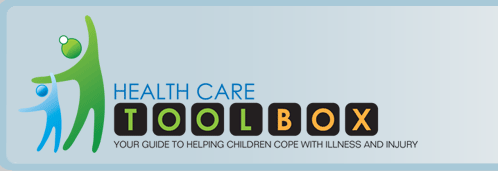Health Care Providers’ Responses to Medical Traumatic Stress in Their Patients
-Meadors, 2008

Lopez-Castillo and colleagues (1999) anonymously surveyed clinical health care professionals working in infectious disease, hemophilia, oncology, and internal medicine at four hospitals. Out of the 196 respondents, 38% reported diagnostic levels of psychological distress, including depression, anxiety, and impaired functioning; a rate comparable to those of their patients.
Working with ill and injured children and families can be professionally meaningful and satisfying. But health care providers treating children and families who are undergoing challenging medical conditions and treatment can sometimes feel drained, upset, or frustrated. This may be especially true during times of increased workloads or heightened personal stress.
Sometimes these very human responses get in the way of being optimally effective at work – contributing to tension or conflicts with patients’ families, or to stresses within the health care team.
A study by the Association of Professors of Medicine (2004) estimated the prevalence of burnout among physicians in the US at 22%. As part of a larger study on burnout in physicians, Deckard and colleagues (1994) found that 58% of the 59 pediatricians studied scored high on emotional exhaustion measures.
In responding to the pain and distress of children and families, the research suggests that the ability to identify, understand and manage one’s emotional reactions is paramount. In doing so, provider self-care is key.
Although the intimacy and closeness of these interpersonal relationships can evoke feelings of accomplishment and unique importance, their intensity may also put a heavy emotional burden on care providers.
-LeBlanc et al. 2001
When working with children and families with complex and challenging illnesses or injuries, it is recommended that health care providers routinely:
- Be aware of their own emotional reactions and distress when confronting others’ traumatic experiences, and know what traumatic material may trigger them.
- Connect with others by talking about their reactions with trusted colleagues or others who will listen.
- Maintain a balance between their professional and personal lives, with a focus on self-care (e.g., relaxation, exercise, stress management, etc.) to prevent, and lessen the effects of, workplace stress.

Each provider may have a different way of coping with work-related stresses. These are some practical strategies that may be helpful in preventing and reducing the effects of stress reactions:
In your daily routine:
- Be sure to eat sensibly and regularly every day
- Get adequate sleep each night
- Exercise regularly
- Be aware of your stress level; take precautions against exceeding your own limits
- Acknowledge your reactions to stressful circumstances; allow yourself time to cope with these emotions
At work:
- Try to diversify tasks at work, or vary your caseload, to the extent that you can
- Take breaks during your workday
- Take vacation days
- Use relaxation techniques (e.g., deep breathing) as needed
- Talk with colleagues about how your work affects you
- Seek out, or establish, a professional support group
- Recognize your personal limitations; set limits with patients and colleagues
Outside of work:
- Spend time with family and friends
- Stay connected with others through community events, religious groups, etc.
- Engage in pleasurable activities unrelated to work, especially those that allow for creative expression (writing, art, music, sports, etc.)
- Be mindful of your own thoughts and feelings; replace cynicism with positive self-talk and reaffirmations
- Engage in rejuvenating activities such as meditation, prayer, or relaxation to renew your energy
- Seek therapy if you think it would be helpful
-Madrid, 2006
RED FLAGS
Be on the alert for these immediate stress responses and/or long-term effects:
Physical Reactions
- Fatigue
- Sleep disturbances
- Changes in appetite
- Headaches
- Upset stomach
- Chronic muscle tension
- Sexual dysfunction
Emotional Reactions
- Feeling overwhelmed/ emotionally spent
- Feeling helpless
- Feeling inadequate
- Sense of vulnerability
- Crying more easily or frequently
- Suicidal or violent thoughts or urges
Behavioral Reactions
- Isolation, withdrawal
- Increased mood swings
- Irritability
- Restlessness
- Changes in alcohol or drug consumption
- Changes in relationships with others, personally & professionally
Cognitive Reactions
- Disbelief, sense of numbing
- Replaying events in one’s mind over & over
- Decreased concentration
- Confusion
- Impaired memory
- Difficulty making decisions or problem-solving
- Disturbing dreams or fantasies
to be sustained.
-Maytum, 2004
To learn more about managing secondary traumatic stress, explore these resources or click here to find out what the research says.
Websites and online resources:
The American Academy of Pediatrics offers online resources for physician health and wellness
The International Society for Traumatic Stress Studies has a webpage addressing indirect trauma
Idaho State University maintains a webpage of resources about secondary traumatic stress for the helping professions
The Texas Medical Association’s Committee on Physician Health and Rehabilitation offers online and home study courses relevant to self-care
Books and reading materials:
Treating Compassion Fatigue
Charles Figley, Brunner-Routledge; New York; 2002.
Help for the Helper: The Psychophysiology of Compassion Fatigue and Vicarious Trauma
Babette Rothschild, W.W. Norton & Co.; New York; 2006.
Overcoming Secondary Stress in Medical and Nursing Practice: A Guide to Professional Resilience and Personal Well-Being
Robert J. Wicks, Oxford University Press; New York; 2005.



